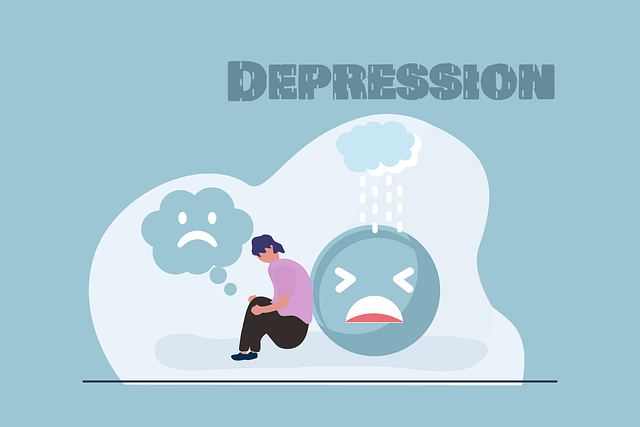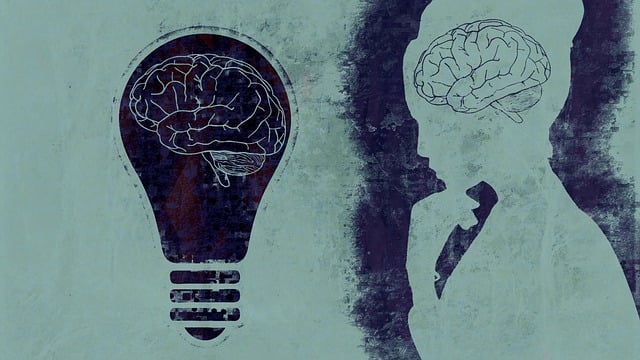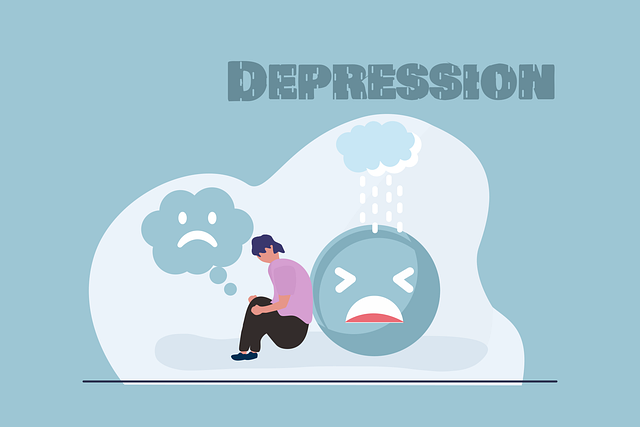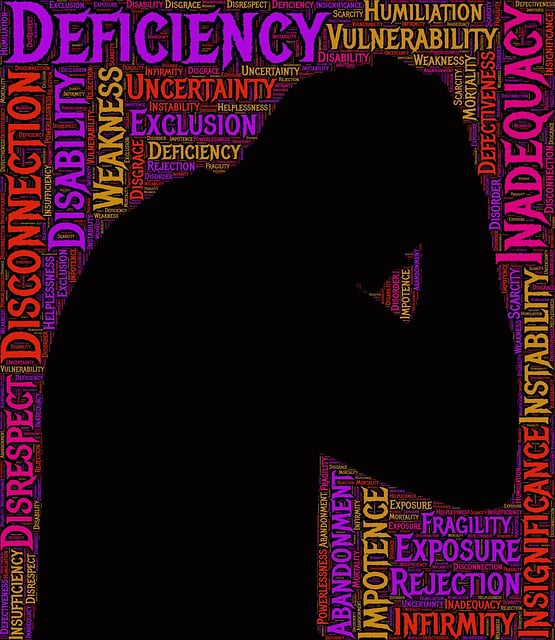In Denver, mental health stigma significantly impedes access to care for Spanish-speaking residents due to cultural barriers, language differences, and fear of judgment. To combat this, a multifaceted approach includes education initiatives, cultural competency training for professionals, tailored risk assessment tools, trauma support services sensitive to cultural nuances, and incorporating mindfulness meditation into therapy. Media portrayal of mental illness impacts public perception, with historical stigmatization leading to barriers for Denver's Spanish-speaking communities. A positive shift towards accurate and diverse media representations is encouraging conversations and promoting understanding. By featuring relatable diverse characters and crisis intervention guidance sensitive to cultural nuances, media can help break stigma and promote access to mental health resources like Denver Spanish Speaking Therapy, which offers culturally sensitive services tailored to the Latino community's unique needs.
In an era where media plays a pivotal role in shaping public discourse, the representation of mental illness is more important than ever. This article delves into the unique challenges faced by Spanish-speaking communities in Denver, exploring how media influences perceptions and the pressing need for accurate, empathetic portrayals. From understanding stigma to implementing effective strategies, we highlight the crucial role of Denver Spanish-speaking therapy in challenging stereotypes and fostering a more inclusive narrative around mental health.
- Understanding Mental Health Stigma and Its Impact on Spanish-Speaking Communities in Denver
- The Role of Media in Shaping Public Perception of Mental Illness
- Exploring the Gap: Representation of Spanish-Speaking Individuals with Mental Health Issues in Denver Media
- Strategies for Accurate and Empathetic Portrayal of Mental Illness in Local Media
- The Power of Denver Spanish Speaking Therapy: A Community Approach to Challenging Stereotypes
Understanding Mental Health Stigma and Its Impact on Spanish-Speaking Communities in Denver

In Denver’s diverse communities, understanding mental health stigma is a critical step toward improving access to care for Spanish-speaking residents. Stigma surrounding mental illness often prevents individuals from seeking professional help, leading to undiagnosed and untreated conditions. This is particularly pronounced in Hispanic and Latino populations, where cultural barriers, language differences, and fear of judgment can create significant obstacles to receiving necessary therapy. For example, many Latinx individuals may associate mental health issues with personal weakness or family shame, deterring them from discussing these topics openly.
Addressing this stigma requires a multifaceted approach, including education initiatives that raise awareness about mental health in Spanish-speaking circles and train mental health professionals on cultural competency. Risk assessment tools tailored to these communities can help identify individuals at risk of developing mental health issues. Additionally, trauma support services sensitive to cultural nuances offer safe spaces for healing. Incorporating practices like mindfulness meditation into therapy can also foster resilience and coping mechanisms that resonate with diverse populations.
The Role of Media in Shaping Public Perception of Mental Illness

The media plays a significant role in shaping public perceptions of mental illness, often influencing how society understands, treats, and supports individuals struggling with psychological disorders. In today’s digital era, where information spreads rapidly, media platforms have immense power to either perpetuate stereotypes or foster understanding. Unfortunately, historical representations in film, television, and news coverage have contributed to the stigmatization of mental health issues, often portraying them as rare, dangerous, or even fictional. This misperception can deter people from seeking help and create a barrier to access for Denver Spanish speaking therapy services.
However, there is a growing movement towards more accurate and nuanced portrayals. By incorporating real-life stories and diverse perspectives in their content, media outlets are helping to humanize mental illness. This shift encourages empathy and promotes conversations that challenge the stigma associated with seeking treatment. Moreover, it inspires hope by showcasing resilience and recovery, which can be powerful catalysts for individuals facing similar challenges, whether they turn to a Mental Health Policy Analysis and Advocacy or discover Burnout Prevention Strategies for Healthcare Providers.
Exploring the Gap: Representation of Spanish-Speaking Individuals with Mental Health Issues in Denver Media

In Denver, the representation of Spanish-speaking individuals with mental health issues in media has long been a topic of concern. Despite the growing diversity within the city’s population, their stories often remain unseen or inadequately portrayed. This gap in representation poses significant challenges for fostering understanding and access to mental wellness resources among Denver’s Spanish-speaking community. Many struggle to find relatable characters or narratives that reflect their experiences, leading to a sense of isolation and barriers to seeking necessary therapy.
Exploring the gap highlights the importance of inclusive storytelling and media representation. Encouraging media outlets to prioritize featuring individuals from diverse backgrounds, including those who identify as Spanish-speaking, can significantly impact mental health discourse. By incorporating characters engaging in self-care routines, such as journaling exercises or developing healthy habits, media can subtly promote mental wellness practices. Moreover, providing crisis intervention guidance tailored to cultural sensitivities could be life-saving, ensuring that all Denver residents have access to appropriate support systems.
Strategies for Accurate and Empathetic Portrayal of Mental Illness in Local Media

A crucial step towards challenging stigmatization and promoting understanding is encouraging accurate and empathetic mental illness representation in local media. Media outlets play a significant role in shaping public perception, so portraying mental health conditions with sensitivity and authenticity is essential. One strategy involves consulting with healthcare providers, especially those specializing in Denver Spanish-speaking therapy, to ensure the accuracy of symptoms, treatments, and cultural nuances related to mental wellness.
Incorporating diverse narratives and characters experiencing mental illness can help break stereotypes. By showcasing individuals from various backgrounds, including different ethnicities and ages, media can reflect the reality that mental health issues transcend cultural boundaries. Additionally, highlighting the journey of recovery and emphasizing the role of support systems, such as therapy and community resources (including Denver Spanish-speaking options), can foster a sense of hope and encourage those struggling to seek help. Mind over matter principles can be incorporated by presenting stories of resilience, demonstrating that with the right tools and support, individuals can overcome challenges related to their mental wellness.
The Power of Denver Spanish Speaking Therapy: A Community Approach to Challenging Stereotypes

In many communities, mental health support services often lack cultural sensitivity, especially when catering to Spanish-speaking populations. This is where Denver Spanish Speaking Therapy steps in as a game-changer. By offering specialized therapy sessions tailored to the unique needs and challenges faced by Latinos, this initiative addresses a significant gap in the mental health landscape. The power of this approach lies in its community-focused strategy, which challenges harmful stereotypes and promotes understanding.
Through compassionate cultivation practices, social skills training, and trauma support services, Denver Spanish Speaking Therapy fosters an environment where individuals can openly discuss their mental health struggles and receive evidence-based treatments. This personalized care not only improves access to mental health resources but also empowers Latinos to take charge of their well-being, breaking down barriers and promoting a healthier, more inclusive community.
In addressing the underrepresentation of Spanish-speaking individuals with mental health issues in Denver media, we must recognize the power of Denver Spanish-speaking therapy as a game-changer. By implementing strategies for accurate and empathetic portrayal, local media can challenge stereotypes and reduce stigma. It is crucial to foster a community approach that includes diverse voices and experiences, ensuring that those seeking help find reflection and understanding. Together, we can navigate this labyrinthine issue and create a more inclusive landscape where mental illness is openly discussed without judgment.














